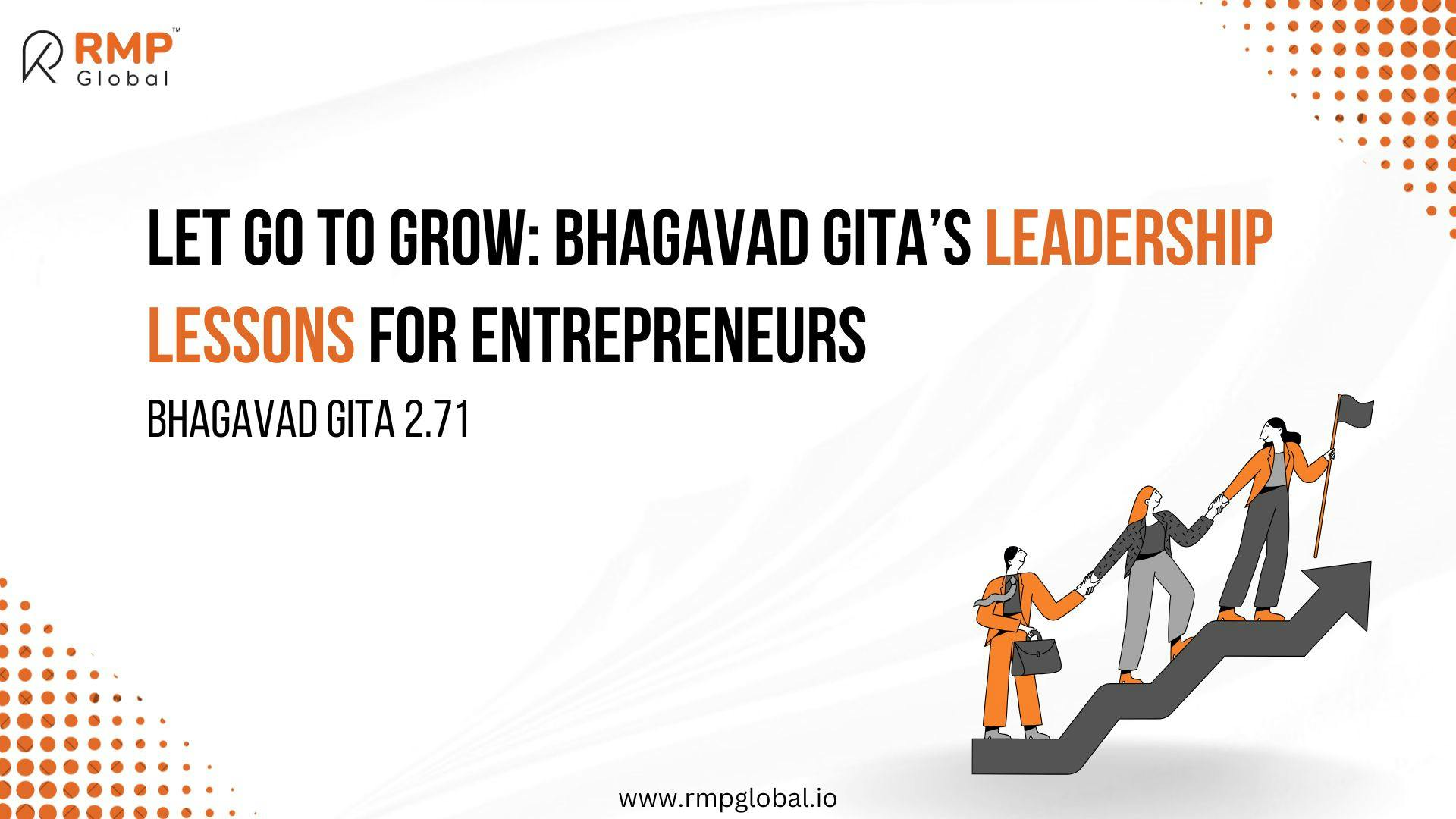
Share
Bhagavad Gita: Chapter 2, Verse 71
Sanskrit:
विहारगा सत्त्वसंशुद्धिर्जनेन्द्रियाणां दमनं त्यागः। द्रव्यं दानं च तदिष्यं शमः शान्तिः सहितोषाम्।।
Translation:
"That person, who has let go all desires, who lives free from longing, who is without the sense of possession and ego, attains peace."
In this verse, Lord Krishna explains the foundational requirement for inner peace (shanti)—a state that is not dependent on external gains but rather arises from a mindset of detachment, contentment, and simplicity. The verse suggests that true peace emerges when we no longer cling to desires, ego, or the sense of possession.
As an entrepreneur or leader, this wisdom is particularly poignant because the pressures of modern life often push us toward constant striving—more success, more wealth, more accolades. This verse calls us back to the essence of inner fulfillment by transcending attachment.
Practical Insights for Entrepreneurs
1. Let Go of the Need for Control
The attachment to outcomes—whether it's profit, market share, or recognition—can create anxiety, unrest, and even burnout. This verse reminds us to focus on the process, not the result. Peace comes from acting with intention and letting go of the need to control every outcome.
Action Tip:
- Write down one project or goal you are overly attached to. Reflect: Am I acting with clarity and purpose, or am I stressed about controlling the result?
- Adopt a mindset of trust. Focus on giving your best effort instead of obsessing over what you can’t control.
2. Transcend Ego in Decision-Making
As leaders, pride or ego can sometimes influence our decisions. It may push us to cling to outdated methods, resist feedback, or overly dominate a situation. This verse encourages us to let go of ego-based thinking and approach leadership with humility and clarity.
Action Tip:
- When faced with a difficult decision, ask yourself: Is this decision being driven by pride or fear? How can I act in a way that is free from ego?
- Practice active listening in team discussions. Allow feedback to shape your choices.
3. Detach from the Illusion of Ownership
The sense of "mine"—whether it’s possessions, achievements, or even people—can often prevent us from feeling content. While ambition is necessary, we must learn to enjoy success without letting ownership define us. After all, the business you build or the wealth you create is temporary in the grander scheme.
Action Tip:
- Reflect daily on impermanence. Remind yourself that true success lies not in owning more but in contributing meaningfully.
4. Simplify to Amplify
In many ways, the person Krishna describes in this verse leads a minimalist life—they are free of unnecessary cravings or complexities. Entrepreneurs can take inspiration to simplify their workload, strategies, and even their daily routines to focus on what truly matters.
Action Tip:
- Re-evaluate your goals. Eliminate tasks, strategies, or habits that don’t align with your purpose.
- Prioritize clarity over complexity in both your personal and professional life.
5. Find Peace in the Present Moment
The restless pursuit of future desires often leads to dissatisfaction with the present. Peace comes from truly living in the moment—not dwelling in the past or obsessing over the future.
Action Tip:
- Incorporate mindfulness practices, such as meditation or mindful breathing, into your daily routine.
- Ask yourself throughout the day: Am I fully engaged in this moment, or is my mind elsewhere?
Leadership Wisdom From Verse 2.71
In leadership, it’s easy to get caught up in wanting to “own” success or attaching your identity to external goals. This verse reminds us that true leadership is not about control or attachment but about clarity, purpose, and peace.
Great leaders are those who:
1. Focus on service, not self-interest.
2. Act with intention, not ego.
3. Lead with wisdom, not desire for personal gain.
Challenges for the Week
1. Desire Audit:
Identify 3 desires in your life or work that are creating anxiety or tension. Reflect on how letting go of attachment to these desires could bring more peace.
2. Practice Non-Attachment (Let Go):
Consciously remind yourself to detach from outcomes this week. Focus entirely on the quality of your efforts and let go of stress over results.
3. Simplify Your Schedule:
Remove one task from your calendar that isn’t aligned with your long-term purpose.
Reflection Questions
1. Are you pursuing goals out of necessity, or are they driven by ego or external pressure?
2. How can you simplify your life or business to free yourself from unnecessary worries?
3. What would your leadership look like if you completely detached from your sense of possession or ownership?
Your Inner Strength Is Your True Wealth
This verse from the Bhagavad Gita reminds us that peace is not found in achieving everything—it’s found in letting go. When you shift your focus from accumulating to contributing, from controlling to trusting, you create the space for true clarity and fulfillment.
As Krishna teaches us:
"The one who lets go of all desires and ego attains true peace."
Stay detached, grounded, and purposeful—and watch as your leadership transforms into an unstoppable force.
This article is only a knowledge-sharing initiative and is based on the Relevant Provisions as applicable and as per the information existing at the time of the preparation. In no event, RMP Global or the Author or any other persons be liable for any direct and indirect result from this Article or any inadvertent omission of the provisions, update, etc if any.
